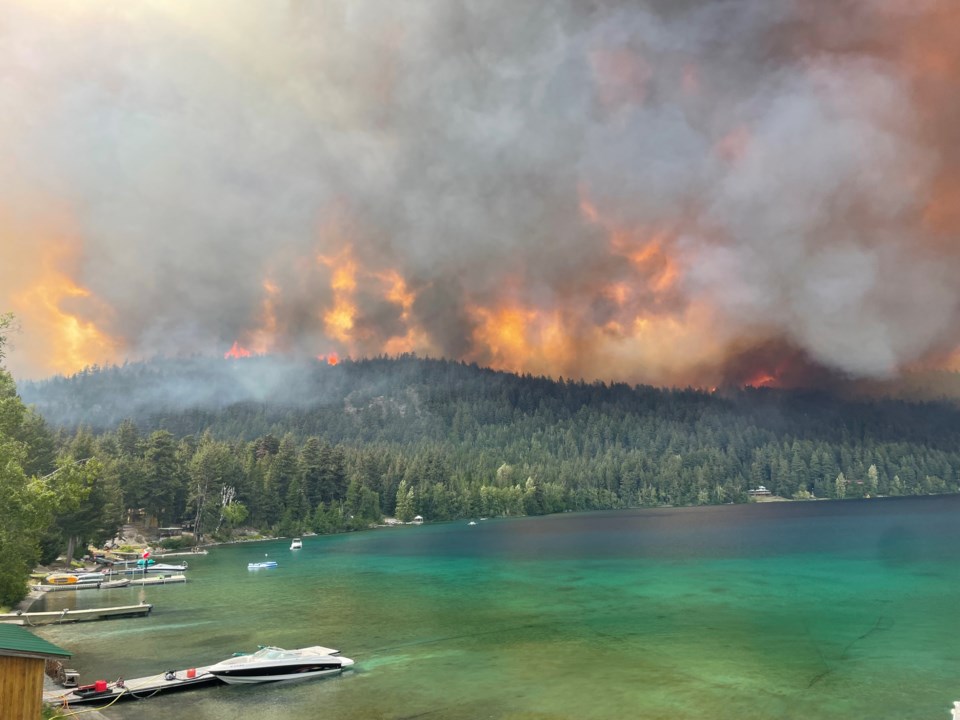An important survey about wildfire protection responsibilities was recently sent out to some Whistlerites.
The academic survey is part of a research project spearheaded by Adeniyi Asiyanbi, an assistant professor at the University of British Columbia Okanagan. He studies how wildfires are governed and how the public engages with wildfire policy decisions. His work seeks to fill a gap in scholarly research about expectations around shared responsibilities in wildfire protection between the public and wildfire managers in Whistler.
“Studies continue to point to a disjuncture between public expectations around shared responsibility for wildfires and what the institutional actors expect,” he said.
He highlighted a 2003 wildfire in Kelowna, after which local insurance companies sued the municipal government over their response to the wildfire.
“The insurance companies had a particular expectation of the government, and the government had other expectations of itself, of its own responsibilities,” Asiyanbi said.
These different expectations continue to play out during wildfires, and as climate change increases the severity of wildfire season, how the public and wildfire managers understand responses will help inform policy.
“There has been a lot of policy work, all of which [is] also trying to educate the Whistler public, to foster more public engagement with wildfire issues and with emergency planning issues,” he said. “But also, this document points to the need to consolidate the governance structures on the ground and rejigging some of those structures to better respond to the risks that Whistler faces when it comes to wildfires.”
The work builds on Asiyanbi’s previous research regarding carbon offsetting and wildfire risk in the Cheakamus Community Forest from 2019 to 2020.
Asiyanbi highlighted the risk of wildfire in Whistler from increasing temperatures, with an annual average temperature increase of 3 C projected by the 2050s. Climate modelling predicts increased temperatures will lead to longer, hotter and drier summers and increased wildfire activity.
Researchers hope the risk will encourage selected residents to fill out the survey, which takes about 13 minutes to complete.
Ten per cent of residences in Whistler were selected to take part, with survey requests sent out to 1,311 addresses. The responses will help inform the Community Wildfire Resiliency Plan (CWRP). Groups responsible for wildfire management helped provide feedback on the survey before it was mailed out, including the Resort Municipality of Whistler’s (RMOW) Wildfire Internal Coordination Group, the Climate Action and Environment Committee and FireSmart Whistler.
The survey is part of a broader research project focusing on Whistler, where Asiyanbi will also conduct interviews with members of the public, wildfire management and emergency response teams. He will also research historical patterns of wildfire management in Whistler and how local policies and regulations have changes around wildfires.
Asiyanbi said he will provide a summary report for the RMOW, but he also hopes various advocacy groups will pick up the findings. The case study can be applied to other municipalities as well. A summary will be publicly accessible online this fall.




